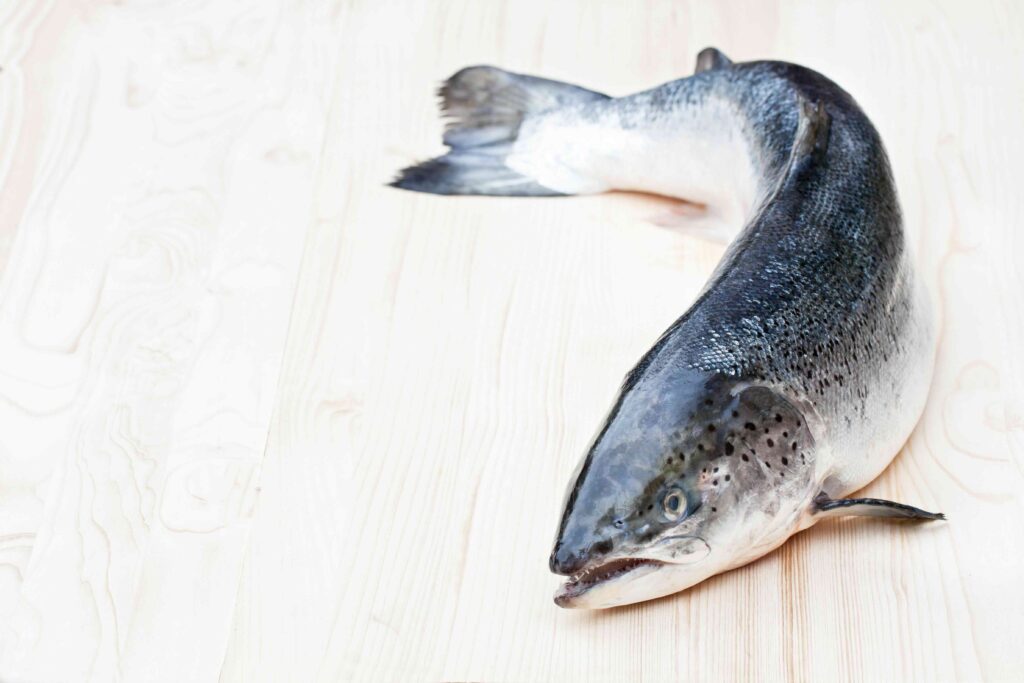Campaigners challenge ‘protected’ rule change for Scottish salmon

Environmental charity Wildfish has formally appealed against a change in the rules on what can be called “Scottish salmon”.
Last month the UK Government approved a request to amend the “Protected Geographical Indication” (PGI) for “Scottish farmed salmon” to “Scottish salmon”.
The PGI rules set out strict criteria for regional food products, specifying not only where they must be from but also how they must be produced. In the case of Scottish salmon this sets out approved production methods and quality controls, covering arrange of issues from feed to fish welfare.
Trade body Salmon Scotland put forward the requested amendment, arguing that unscrupulous traders could pass off an inferior product as “Scottish salmon”. The revised PGI also defines the geographical designation as “the coastal region of mainland Scotland, Western Isles, Orkney, and Shetland Isles”.
The change does not affect the retailer’s obligation to make the origin of seafood, and whether it is farmed or caught, clear on packaging.
Announcing the decision on 4 April, the government said any appeal against the changes would need to be submitted by 30 April.
WildFish (formerly Salmon and Trout Conservation) supports sport fishing but is against fish farming, and the organisation has appealed against the Secretary of State’s decision.
The organisation argues that the change is likely to mislead consumers and does not meet the legal obligations of assimilated EU Regulation 1151/2012 on quality schemes for agricultural products and foodstuffs.
‘Greenwashing’ accusations
Rachel Mulrenan, Scotland Director for WildFish, said: “This is a continuation of an attempt to greenwash the reputation of Scottish farmed salmon in the eyes of consumers. With rising numbers of dead fish on the farms, toxic chemicals polluting Scottish sea lochs, and concerns about fish welfare, it’s perhaps no surprise that this application has been made to change the name and drop the word ‘farmed’. But let’s be clear – this is farmed salmon raised in Scotland, it is not Scottish salmon.”
WildFish, together with a number of other organisations and chefs opposed to farmed salmon, had previously lodged objections but the government said “no admissible reasoned statement of opposition” had been received.
Chef, Tim Maddams, formerly of the River Cottage restaurant in Winchester, said: “It’s tiring and frustrating to have not managed to halt this small advance in the ever-growing marketing power of salmon farmed in Scotland but it’s totemic of a broader issue – the continued greenwashing and subtle ‘not quite sleight of hand’ of large-scale agribusiness in general. If we can’t stop the greenwashing, where will it end?”
Salmon Scotland says that the rules on packaging, which are separate regulations, make it very clear to consumers which seafood products are farmed and which are wild-caught, and the change to the PGI will not affect this.
As wild Atlantic salmon is an endangered species, it could also be argued that, in practice, there are no salmon legally sold for consumption in the UK that are not farmed.

